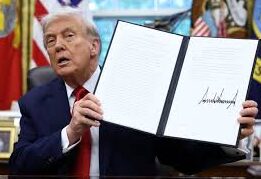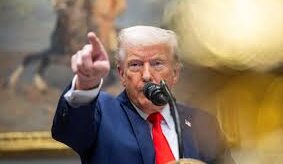Nvidia, the world’s top maker of artificial intelligence chips, is making a bold $5 billion (£4 billion) investment in rival Intel. The deal, announced Thursday, is a lifeline for the struggling chip giant and follows a separate infusion from the US government.
Under the agreement, the two US companies will team up to produce chips for personal computers and data centres, aiming to tap into the soaring demand for AI technology. Nvidia’s stake will give it roughly 4 percent ownership of Intel, making it one of Intel’s biggest shareholders.
Intel’s stock price jumped more than 25 percent after the announcement, while Nvidia shares rose about 3 percent.
Intel has struggled for years to expand its chip production capacity and has fallen far behind Nvidia, whose AI-focused chips dominate the market. Nvidia’s market value has surged past $4 trillion, compared to Intel’s roughly $100 billion.
Nvidia CEO Jensen Huang called the new partnership “a fusion of two world-class platforms” and said it would “lay the foundation for the next era of computing.”
The move comes after the Trump administration announced in late August that the federal government would take a 10 percent stake in Intel. At the time, Commerce Secretary Howard Lutnick called the investment a “major” step to strengthen US leadership in semiconductors, boost the economy, and secure America’s technological edge.
The White House investment followed a public clash between President Donald Trump and Intel CEO Lip-Bu Tan. Trump accused Tan of problematic ties with China and urged him to resign, which Tan denied, calling the claims “misinformation.”
Responding to Nvidia’s new stake, Tan said, “We appreciate the confidence Jensen and the Nvidia team have placed in us.”
Intel was once a dominant force in personal computer chips but has steadily lost ground over the past two decades. It has also struggled to benefit from the AI boom that has propelled Nvidia to new heights.
The partnership also highlights the challenges both companies face in China. Nvidia is grappling with falling sales there as the country ramps up domestic chip production. The company is also caught in the crossfire of the US-China trade war. Huang said this week he was “disappointed” by reports that China has ordered top tech firms to stop buying Nvidia’s AI chips.






